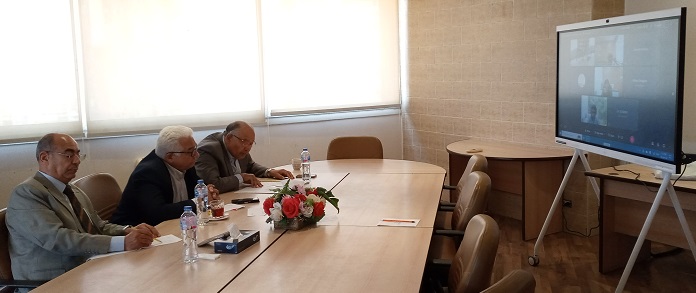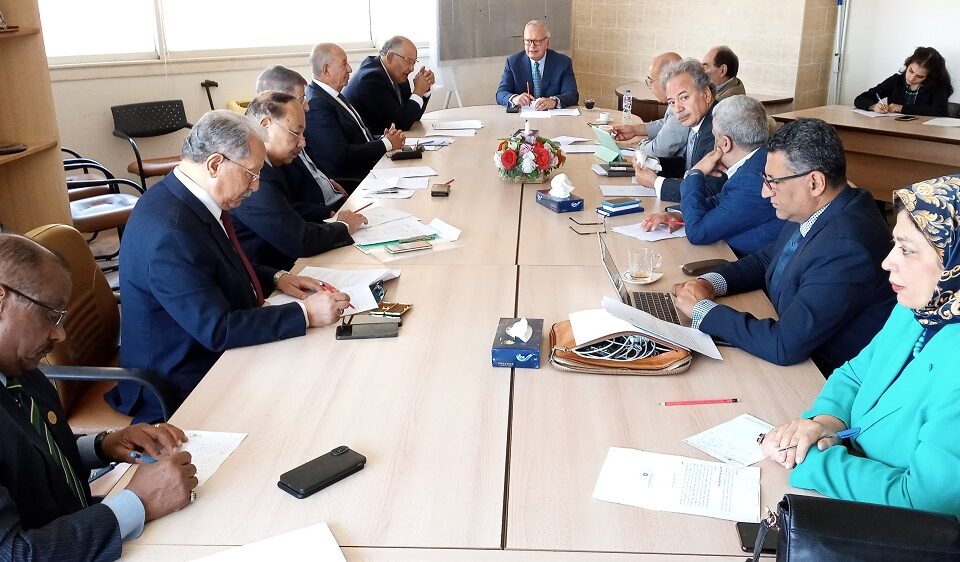On October 27, 2022, ECFA held a seminar on the “National Initiative for Green Smart Projects in the Arab Republic of Egypt”, in which it hosted Ambassador Hisham Badr, General Coordinator of International Conferences at the Ministry of Planning, the Initiative’s General Coordinator and Head of its National Organizing Committee, to introduce the axes of the initiative and identify its latest developments. The meeting was opened by ECFA Chairman, Ambassador Dr. Mounir Zahran, and attended by a number of ambassadors, experts and businessmen from ECFA members.
Ambassador Badr indicated that the National Initiative for Green Smart projects in the Egyptian governorates came within the framework of the current efforts to preside and host the Conference of the Parties to the United Nations Framework Convention on Climate Change COP27, and the efforts aimed at achieving sustainable development in the context of implementing Egypt’s Vision 2030 and implementing the National Climate Change Strategy 2050, as it is being implemented as a pioneering initiative in the field of sustainable development and digital transformation and dealing with the environmental dimension and climate change effects, via developing a map at the governorates’ level for smart green projects and linking them with financing agencies and attracting the necessary investments for them internally and externally.
The Initiative was launched by virtue of the decision issued on June 23, 2022 by the Supreme Committee of the preparation for Egypt’s hosting of COP27. The Initiative’s action mechanism is based on the selection by each of the governorates of the Republic of six “smart green” projects, in accordance with the criteria of selection of smart green projects set by the Initiative’s National Organizing Committee, which would measure the impact and extent of productivity, digitization, economic sustainability, and reliance on renewable energy sources and digital transformation. These projects are divided into six categories, allowing all citizens to contribute to projects, namely: large-scale projects – medium-sized projects – small local projects (especially those related to the Hayah Karima Initiative) – projects submitted by startups – development projects related to women, climate change and sustainability – non-profit community initiatives and contributions.
Ambassador Badr indicated that 6,281 projects were submitted to this Initiative during the call period, and for the first time in Egypt’s history there is a database for smart green projects, ready at any time to be implemented on the ground if the necessary funding is available. He also pointed out that all the Initiative’s projects stem from local communities and not from central agencies, which made it the first of its kind globally, and that the competent authorities are seeking to register it under Egypt’s name in the World Intellectual Property Organization, to be a constructive model for other countries to follow. The participants recommended developping a new category in addition to the categories included in the initiative, which is the category of “those under 15 years old”, to encourage children to innovate and positively participate in building the future of their country, and to instill the value of comprehensive social responsibility towards their homeland. This was welcomed by the Coordinator of the Initiative, indicating that this will be taken into account in the Initiative’s periodic announcements in the future.






